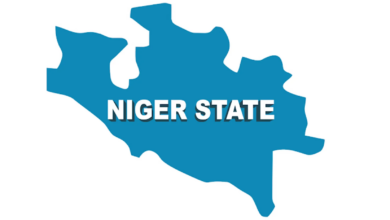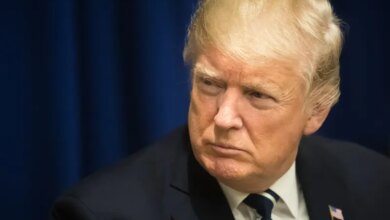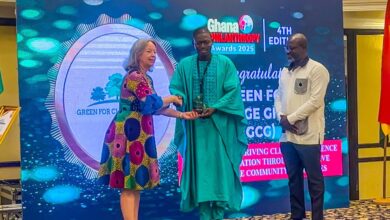Ghana’s 2026 Budget: Winners, losers, and what’s next?


The writer, Professor Evans Akwasi Gyasi, is an Associate Professor of International Trade and the Founder of Trade Growth Network
The 2026 Ghana Budget, themed “Resetting for Growth, Jobs, and Economic Transformation,” marks a pivotal phase in Ghana’s macroeconomic recovery following years of fiscal volatility and inflationary pressure.
It builds upon the 2025 stabilization gains, focusing on consolidating stability, promoting inclusive growth, and sustaining investor confidence. Whereas the budget demonstrates commendable prudence and reform ambition, its implementation will be crucial to determining its success in delivering long-term structural transformation.
A key forte of the 2026 budget lies in its fiscal discipline and macroeconomic consolidation. With a targeted primary surplus of 1.5% of GDP and an overall deficit of 2.2%, the budget aligns with the amended Public Financial Management Act and the IMF-supported programme.
This marks a shift from short-term recovery to sustained fiscal stability. Revenue mobilization efforts projected at GH¢268.1 billion, representing an 18.8% increase over 2025 reflect a strong emphasis on domestic revenue generation through non-oil tax reforms, enhanced compliance, and digital tax administration systems.
Reduction in inflation from 23.8% in 2024 to 8% by October 2025 underscores the effectiveness of coordinated fiscal and monetary policy. This triumph restores purchasing power and economic confidence. Additionally, the decline in Treasury bill rates and improvements in credit ratings (Fitch upgrading Ghana to ‘B-’ with a stable outlook) point to renewed investor trust and a more stable financial environment.
H.E John Mahama’s government structural reform agenda including the VAT overhaul, modernization of the Ghana Revenue Authority (GRA), and adoption of digital fiscal monitoring systems reinforces transparency and reduces revenue leakages.
Likewise, the Big Push Infrastructure Programme and 24-Hour Economy initiative signal a shift toward productive investment and job creation in energy, agriculture, and manufacturing sectors, aiming to translate macro stability into tangible livelihoods.
Notwithstanding these strengths, the 2026 budget presents several risks and weaknesses.
The ambitious fiscal targets hinge on optimistic revenue assumptions that may be difficult to achieve given Ghana’s historical tax compliance challenges and limited diversification of the revenue base.
While the government seeks to broaden taxation through VAT and income tax reforms, such measures risk increasing the burden on households and small enterprises, potentially dampening consumption and growth.
Public debt remains elevated at 48.9% of GDP, and although the budget projects sustainability, external shocks such as global oil price fluctuations and exchange rate volatility could undermine debt servicing capacity.
Additionally, Ghana’s reliance on an IMF-supported framework raises concerns about the autonomy of domestic fiscal policy, as future adjustments may prioritize stabilization over developmental expenditure. The implementation capacity of public institutions also poses a challenge.
Persistent bureaucratic inefficiencies, weak expenditure control at subnational levels, and corruption risks could erode fiscal credibility. While anti-corruption efforts—such as the Office of the Special Prosecutor’s investigations—show progress, systemic issues remain unresolved.
The 2026 budget’s implications are multifaceted. Economically, it represents a pivot from stabilization to sustainable growth, reinforcing Ghana’s commitment to fiscal discipline while aiming to stimulate private-sector activity.
The emphasis on industrialization, export expansion, and digitalization could strengthen competitiveness and job creation, particularly for youth. Socially, increased investment in education, health, and social protection demonstrates a balance between austerity and inclusion.
However, the success of these measures depends on maintaining macroeconomic stability without sacrificing equity. The government’s decision to abolish VAT on mineral exploration and support domestic industries through zero-rated VAT on textiles reflects a pro-investment orientation, yet such sector-specific incentives may reduce overall revenue in the short term.
Moreover, the interplay between fiscal tightening and social spending will test the government’s ability to sustain growth while addressing inequality.
Several policy lessons emerge from Ghana’s 2026 budget.
- Fiscal Credibility Is the Foundation of Growth: The budget demonstrates that disciplined fiscal management can restore confidence and attract investment, but consistency and transparency in implementation are essential.
- Revenue Mobilization Must Balance Efficiency and Equity: Expanding the tax base through digital systems is vital, yet policy design must safeguard vulnerable populations from regressive impacts.
- Institutional Reforms Are Key to Sustainability: Lasting fiscal stability depends on strengthening governance, combating corruption, and enhancing administrative efficiency across public institutions.
- Diversification and Value Addition Are Crucial: Reducing dependence on extractives through investment in manufacturing, agriculture, and renewable energy will mitigate external shocks.
- Inclusive Growth Requires Policy Coherence: Economic transformation must align with social objectives, ensuring that stability translates into job creation and poverty reduction.
In summary, the Ghana 2026 Budget is a credible and forward-looking policy document that transitions the nation from recovery to transformation. It blends fiscal discipline with developmental ambition, leveraging macroeconomic gains to spur inclusive growth.
However, its success will depend on effective execution, realistic revenue strategies, and institutional accountability. If managed prudently, the 2026 budget could become a model for post-stabilization economic governance anchoring Ghana’s path toward resilience, productivity, and shared prosperity.
The writer, Professor Evans Akwasi Gyasi, is an Associate Professor of International Trade and the Founder of Trade Growth Network
DISCLAIMER: The Views, Comments, Opinions, Contributions and Statements made by Readers and Contributors on this platform do not necessarily represent the views or policy of Multimedia Group Limited.
DISCLAIMER: The Views, Comments, Opinions, Contributions and Statements made by Readers and Contributors on this platform do not necessarily represent the views or policy of Multimedia Group Limited.
Source link





